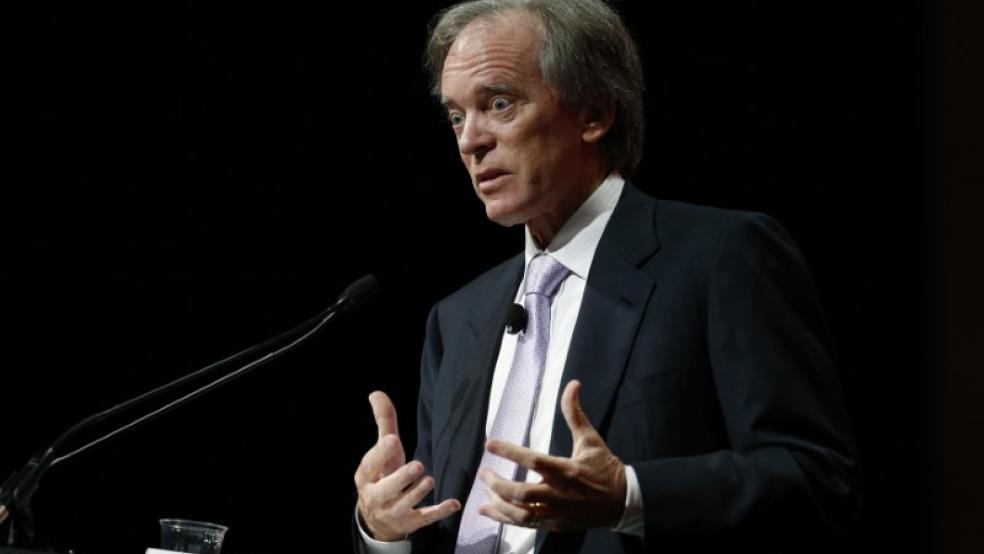NEW YORK (Reuters) - If the yield on the benchmark 10-year Treasury note moves above 2.60 percent, a secular bear bond market has begun, investor Bill Gross warned on Tuesday.
"Watch the 2.6 percent level. Much more important than Dow 20,000. Much more important than $60-a-barrel oil. Much more important that the Dollar/Euro parity at 1.00. It is the key to interest rate levels and perhaps stock price levels in 2017," Gross wrote in his latest investment outlook to clients. The 10-year Treasury note yield was around 2.37 percent late on Monday. Gross, who runs the $1.7 billion Janus Global Unconstrained Bond Fund, said: "Happiness has dominated risk markets since early November and despair has characterized global bond markets."The 100 basis point move in the 10-year Treasury yield from 1.40 percent to 2.40 percent has stemmed from the hope for stronger growth by way of Republican fiscal progress, reduced regulation and tax reform, Gross noted. He also said Treasury yields have edged higher on encouraged risk-taking as well as the potential for higher inflation and a more hawkish Federal Reserve."Are risk markets overpriced and Treasuries over-yielded? That is a critical question for 2017," Gross wrote.Gross noted that U.S. President-elect Donald Trump "tweets and markets listen for now, but ultimately their value is dependent on a jump step move from the 2 percent real GDP growth rate of the past 10 years to a 3 percent-plus annual advance." Gross said 3 percent growth rates historically have propelled corporate profits to a somewhat higher clip because of financial and operating leverage dependent on higher growth. "We shall see whether Republican/Trumpian orthodoxy can stimulate an economy that in some ways is at full capacity already," Gross said. "To do so would require a significant advance in investment spending which up until now has taken a backseat to corporate stock buybacks and merger/acquisition related uses of cash flow. I, for one, am skeptical of the 3 and more confident of the 2."Gross said demographic negatives associated with an aging population are now more at risk due to rising interest rates, technology's displacement of human labor, and the deceleration and retreat of globalization, posing threats to productivity and GDP growth."Trump’s policies may grant a temporary acceleration over the next few years, but a 2 percent longer term standard is likely in place that will stunt corporate profit growth and slow down risk asset appreciation," Gross said. (Reporting By Jennifer Ablan)Bill Gross: Secular bear bond market to begin if 10-year Treasury yield tops 2.60 percent

© Jim Young / Reuters



